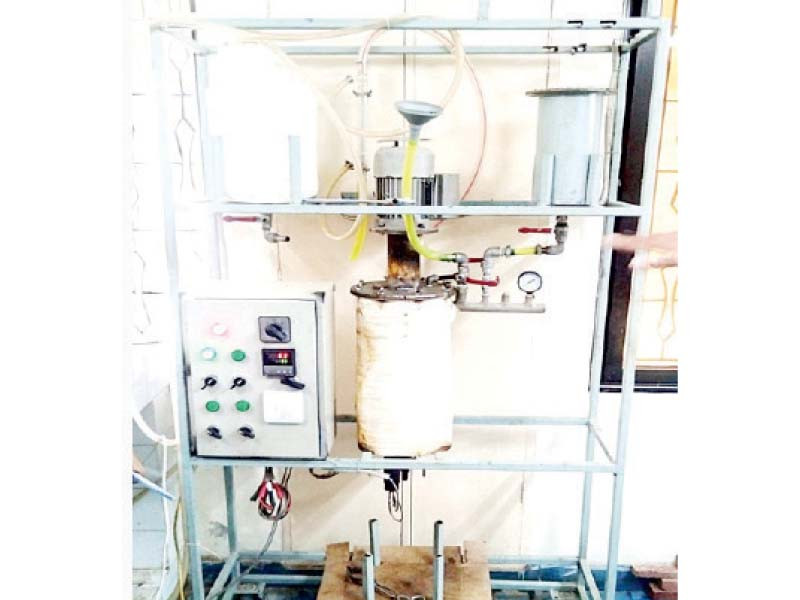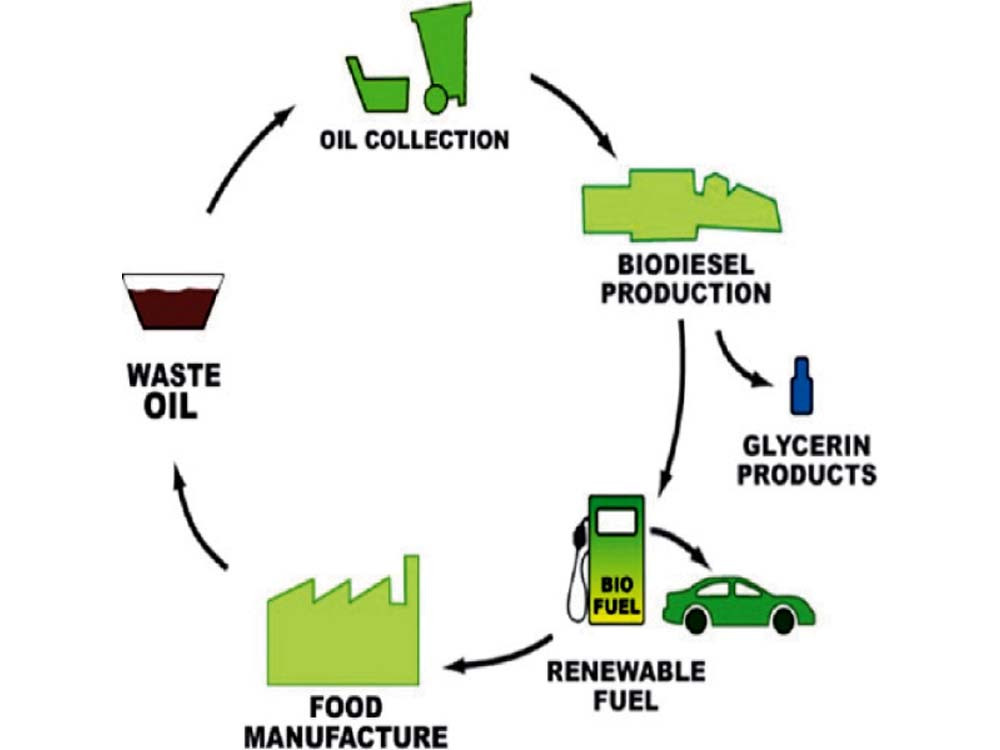
Karachi’s young engineers have found an easy and inexpensive way to produce environmentally-friendly biodiesel from used edible oil.
Converting edible oil into biodiesel will save a lot of foreign exchange spent on diesel imports and also help protectt the environment.
Continuing the research of the country’s renowned teachers on biodiesel at NED and Dawood Engineering University, the engineers have found a way to make the fuel by refining used edible oil up to 93%. Biodiesel, produced in this way, can be used in power generators and heavy duty vehicles.
Ali Riaz, a member and founder of the start-up called Bio-Being, told The Express Tribune that used edible oils go through a process of transesterification to separate hydrocarbons from fatty elements (glycerin). In this way, along with biodiesel, glycerin is also produced for industrial use in the cosmetics industry.
This process usually takes 24 hours, but Ali Riaz and his team, under the guidance of their teachers, have found a way to convert edible oil into biodiesel in just one hour. Riaz said that a lot of work has been done at NED and Dawood University on the method of making biodiesel from edible oil and the teachers did a lot of research into the method.
Ali Riaz and his colleagues secured engineering degrees from the NED and then got a job after studying business management, but they continued to look for ways to commercialise the work of their teachers. Their first major breakthrough came in 2019.
Currently, biodiesel is being produced from edible oil on a trial basis through a locally developed plant at NED. About 60% of the energy demand of this plant is also met by solar power. In this way, the method is environmentally friendly.
The biodiesel, produced by Bio-,Being was tested in the laboratory of the Federal Ministry of Science and Technology and its quality certificate was issued by the National Scientific Laboratory.
Read More: Govt to provide tax relief on edible oil

Ali Riaz and his team convert edible oil used for frying from international food chains and fast food restaurants in Pakistan to local hotels and convert it into biodiesel. He said that they have also developed a mobile application for making biodiesel by recycling edible oils used at home, with the help of which housewives can also sell used edible oils from their homes to Bio-Being.
The company’s riders will go door-to-door to collect the used oil. In this way, people will be able to earn an extra income.
The idea of Bio-Being is gaining national acceptance. After going through various incubation and accelerator programs, this idea has become very solid and commercially viable.
The Bio-Being saw a significant appreciation at the National Idea Bank in a recently-held competition of new ideas at the national level as compared to other startups in the natural resource category.
The Bio-Being project will also play an important role in protecting public health. Once the edible oil is used for frying, it begins to produce carcinogenic substances. Repeatedly used oils increase the amount of carcinogenic substances. This harmful substance causes cancer. The Bio-Being team wants to block the use of used oil in carts and small hotels by buying used oil from large restaurants. However, it also needs the support of the government.
The Bio-Being team is keen to promote a pilot project to produce biodiesel from edible oil on a commercial scale for which they need land and capital to install the plant.
Pakistan is one of the largest consumers of edible oil. The country meets 35% of its diesel requirement through imported diesel. Bio-Being’s revolutionary plan will eliminate the risk of unsafe use of edible oil to convert edible oil into biodiesel, along with the savings of a large amount of foreign exchange on diesel imports.
According to statistics, per capita consumption of edible oil in Pakistan is four to five liters per year. To meet this demand, 3,622 kilotons of edible oil is used annually across the country from which 3,000 Kt of biodiesel can be produced and millions of rupees can be saved annually.
Published in The Express Tribune, March 15th, 2022.


1731570357-0/elon-musk-(1)1731570357-0-165x106.webp)
-(1)1717678110-0/Kendrick-(1)-(1)1717678110-0-165x106.webp)
















COMMENTS (1)
Comments are moderated and generally will be posted if they are on-topic and not abusive.
For more information, please see our Comments FAQ